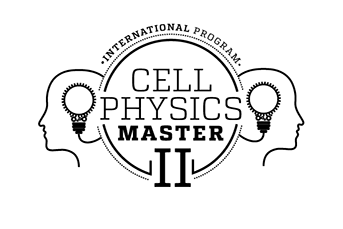
Physics
October to February
L. Hilbert : Active droplets
- Phase separation can compartmentalize the cellular space
- Catalytically active sites can shape phase droplets
- Active processes can disperse droplets
K. Kruse : Introduction to active gel theory and applications on cellular scales
- Out-of-equilibrium physics : principles
- Active gels : definitions, the cytoskeleton from a theory point of view
- Stress generations
- Active hydrodynamics
- Cell migration
F. Graner : From cell to tissue : multiscale physics of epithelial tissues
- From cell to tissue
- Structure and dynamics of tissues, in vivo and in vitro
- Analogies and differences with cellular materials in physics
- Experimental methods, from image analysis to force measurements
- Models : strengths and limitations
G. Salbreux : Physics of biological tissues as active fluids
- Continuum description of an active fluid
- Examples of flows induced by tissue growth
I. Kulic : Dynamics of the cytoskeleton (theory)
A. Ott : Experimental biophysics
- Rheology of active gels
- Rheology of cells/monolayers
- Origin of life
P. Didier : Biophotonics
- Light-matter interaction (absorption, emission and diffusion)
- Probing biomolecular interaction with fluorescence spectroscopy (Energy transfer, anisotropy, stop flow)
- Optical microscopy (basics, diffraction limit, high-resolution imaging)
- Quantitative fluorescence imaging (Fluorescence Lifetime Imaging Microscopy, single molecule experiments)
M. Maaloum/ S. Harlepp : Forces and micromanipulations, AFM and optical tweezers


